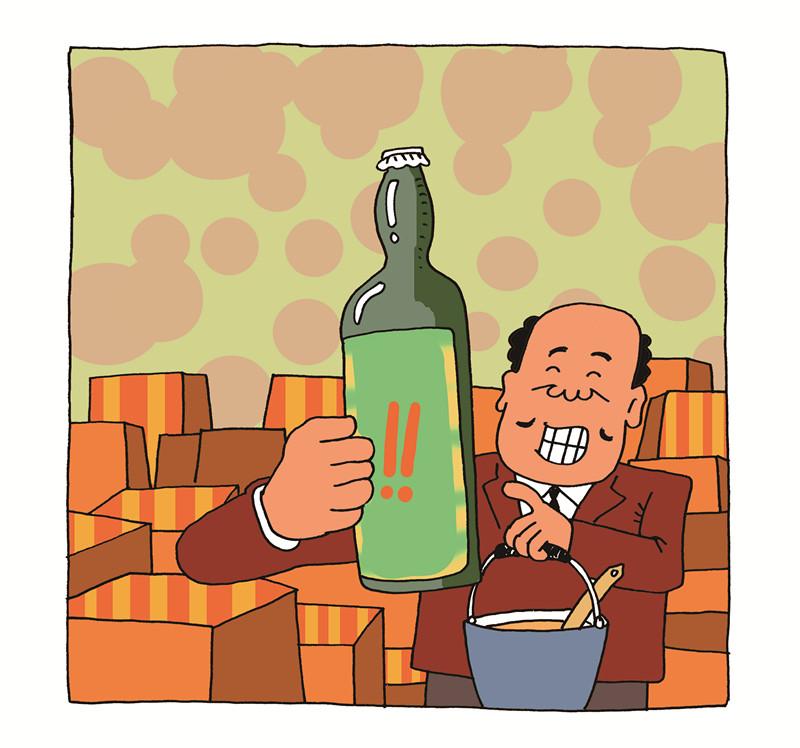
 Old Version
Old Version
I remember living in London during the early days of the craft beer revolution and thinking it would be great to join an exciting new scene like this. Fast-forward six years to early 2016 and I found myself in Beijing with the opportunity to experience it first-hand as it took hold in China. I got a job as a sales manager for a year at two different beer distributors and had an incredibly fun, challenging and frustrating experience. A snapshot of working in China no doubt, but I wonder just how different it was compared to the same industry back in London.
As so many adventurers to China find, there’s a lot of being thrown in at the deep end. I recall meeting my manager on the afternoon of my first day and off we went to visit several existing clients we supplied. We chatted with the bar managers and drank a beer at each venue. Later we attended a rival’s craft beer launch party then ended the night eating hotpot with one of our distributors. And there concluded my entire training program. Great fun for a first day, but it hardly left me feeling equipped to be able to open my own accounts. Two weeks later I found myself manning a booth at the first China International Craft Beer festival. As extremely knowledgeable customers came up to me and asked which hops and malts were used in the beers I realized I would very quickly have to learn not just the difference between Chinook and Fuggle hops or Pilsner and Crystal L10 malts, but how to make that distinction in Mandarin, too.
The nascent craft beer industry in China is a bit like the Wild West. The market moves so rapidly that one is constantly forced to deal with problems of stock shortage. A sales manager in Dongbei may suddenly manage to sell a pallet’s worth of newly-arrived Danish craft beer, leaving nothing for other sales managers to service their own customers with until the next container arrives – two months later. Colleagues in the online team may quietly have a good week and, before you know it, the rest of your brand’s stock has been shipped out to Taobao customers all over China. Once, we ran out of pale ale stock of one craft beer brand. The China solution? Why don’t we just relabel the bottles of another ale of the same brand that wasn’t selling so well? It seems anything goes when trying to supply a market this unpredictable.
And then there’s the use of the WeChat messaging app. I almost can’t imagine what the beer industry would have been like pre-WeChat. My company alone had several WeChat groups that seemed to be on the go 24/7. When signing up new clients, the first thing I’d do would be to create a WeChat group with the respective bar or restaurant staff and our distributor or other sales managers. This would be the ordering platform, so that any time the client was almost out of stock they would message the whole group, be it 3am on a Wednesday morning or midnight on a Saturday. In turn, every client would add me to their bar or restaurant’s group chat, because of course they all like to have group chats for promotions, in addition to their WeChat official accounts.
I have never witnessed so much communication occurring in real-time. Every time I opened WeChat, each group would have 100 messages, 200 messages – most of it mindless chitchat with only the occasional nugget of information. Yet you still have to sift through it, so there goes an hour or two of your day.
An issue I came across time and again was that of parallel imports. This is beer brought in through unofficial import channels, not through licensed importers. I remember visiting a key customer and doing a routine check of our brand’s bottles to see if the import labels were ours. Instead I found one of our distributor’s own labels on the bottles – they were supplying our customer with beer that wasn’t ours and had been procured unofficially, right under our noses. Speaking of something happening right under our noses, on more than one occasion I’ve had clients contact me to report that some of the beer bottles in the cases are empty upon delivery.
Did the customs staff get thirsty while on duty? Did our warehouse staff fancy a quick tipple? Or, God forbid, our delivery drivers?
What with the parallel imports, the local craft breweries and all the international craft beers competing for market share, Beijing’s craft beer market soon became ultra competitive. An industry I had expected to be about the craft and ingredients was instead one where even the top brands I worked with were happy to pay cash in return for contracts, provide considerable rebates or invest heavily in venues just to gain market share. Again, I wonder how different this is to the beer industry back in the UK. I guess there’s only one way to find out.